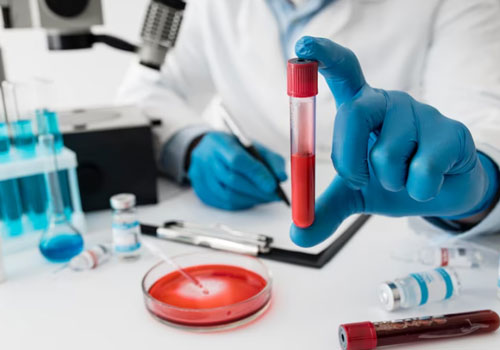| |
|
|
Hematology services encompass a range of medical activities focused on the study, diagnosis, and treatment of disorders related to blood and the blood-forming tissues, including bone marrow and lymph nodes. These services are essential for maintaining overall health and managing various conditions affecting the blood and immune system. Here are some key aspects of hematological services:
Hematologists perform a variety of diagnostic tests to assess blood components and functions. These include complete blood count (CBC), blood smears, blood chemistry tests, coagulation studies, and bone marrow biopsies. These tests help in the diagnosis of conditions such as anemia, leukemia, lymphoma, thrombosis, and bleeding disorders.
Treatment may involve iron supplementation, blood transfusions, or medications to stimulate red blood cell production.
Treatment options include chemotherapy, targeted therapy, immunotherapy, radiation therapy, and stem cell transplantation.
Management strategies may include medications to promote clotting, transfusions of clotting factors or platelets, and lifestyle modifications.
Treatment may involve anticoagulant medications to prevent blood clot formation or procedures to remove existing clots.
Hematology services encompass the diagnosis and management of inherited blood disorders such as sickle cell disease and thalassemia. This may involve regular monitoring, supportive care, and treatments to alleviate symptoms and complications.
Hematology services include the administration of blood transfusions when necessary, such as in cases of severe anemia, trauma, or surgery. Blood products like red blood cells, platelets, and plasma are transfused based on patient needs.
Hematologists manage disorders of coagulation, including hemophilia, von Willebrand disease, and acquired coagulopathies. Treatment may involve clotting factor replacement therapy, medications, and preventive measures to reduce bleeding risks.
Hematology services often involve the diagnosis and treatment of blood cancers, including leukemia, lymphoma, and multiple myeloma. This may include chemotherapy, immunotherapy, targeted therapy, and stem cell transplantation.

|
|
|
|
|